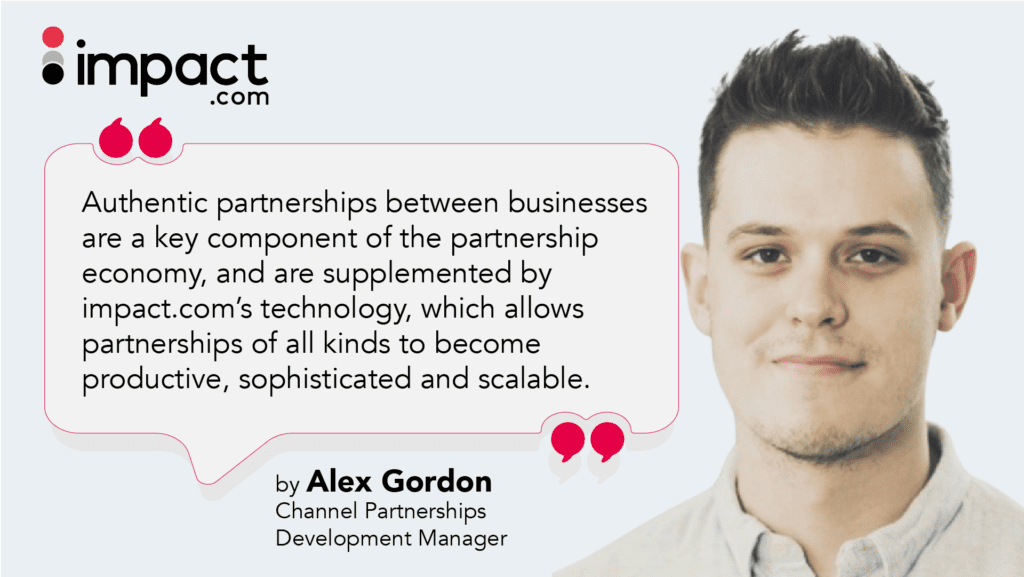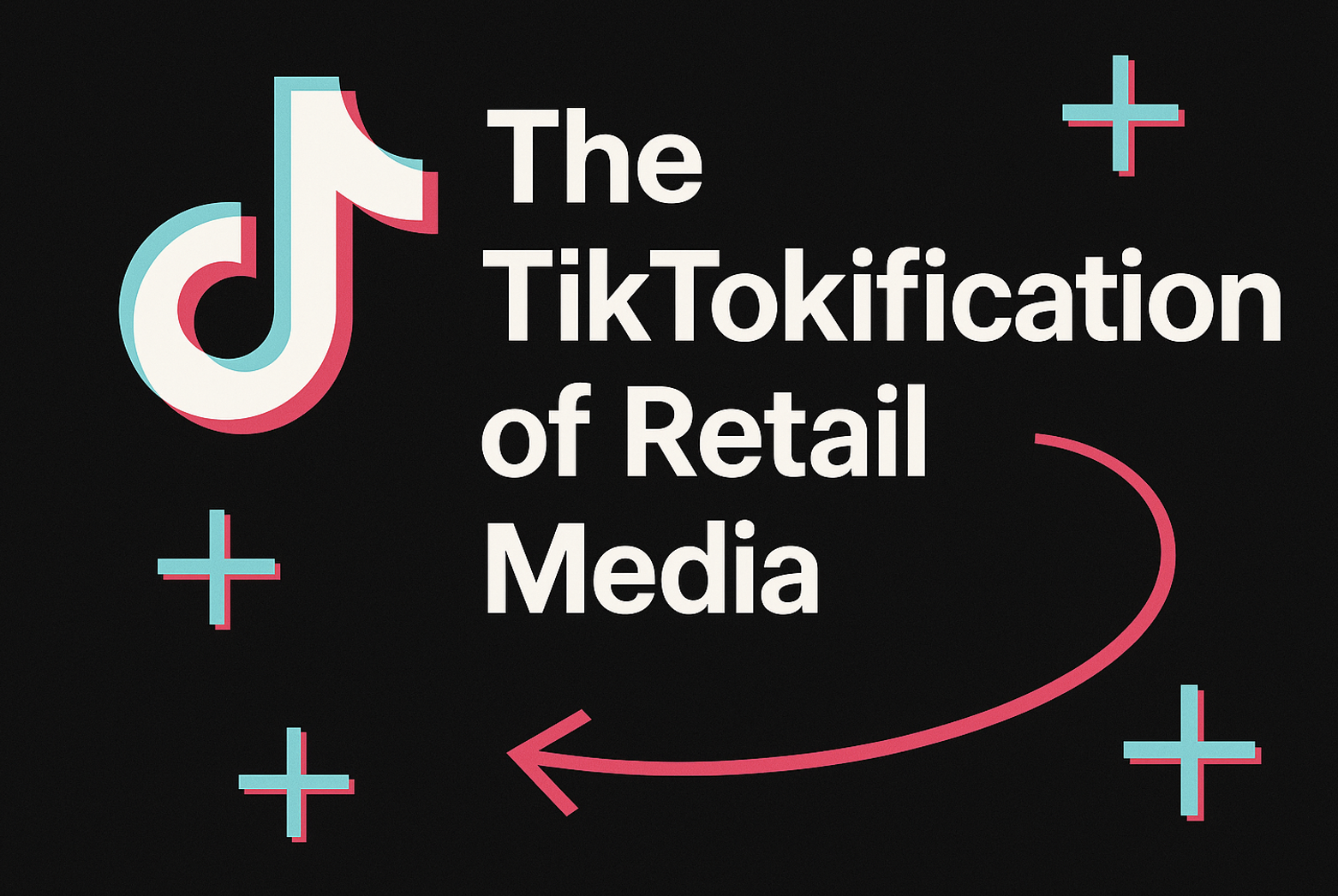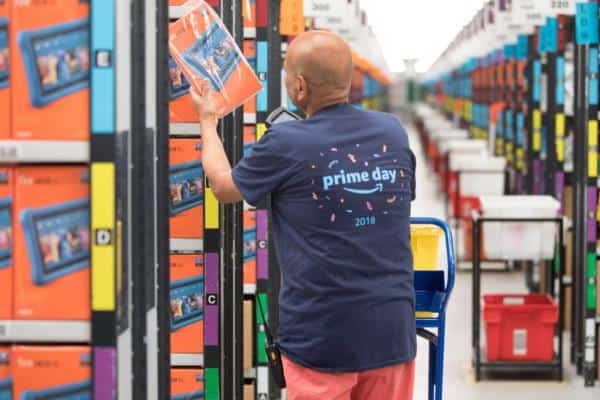By Alex Gordon, Channel Partnerships Development Manager, impact.com
In a post-pandemic world, the digital advertising industry finds itself in the throes of a sea change, buffeted by huge fluctuations in audience behaviour, increasingly stringent privacy laws and the protracted death of the cookie.
All of these factors demand a considered, personal approach that conventional digital advertising has struggled to serve. But during this turbulent period, the partnership economy has met that need.
Partnerships have reimagined the relationship between advertiser and audience, allowing brands to create personal and nuanced interactions, while welcoming in a new era of commerce.
What could partnerships do for your business? Let’s take a look at the three issues the partnership economy can solve for you.

The Three Challenges
- Privacy and consent
Privacy is an increasingly important issue that affects us all. We all operate under the privacy and consent conditions set by the internet’s biggest players. However, consumer scepticism about digital advertising has opened the door for partnerships to deliver authenticity and trustworthiness along the consumer journey.
This isn’t to say that partnerships will ‘solve’ the existing privacy and consent concerns your business has – these challenges are highly technical. However, the opportunity that partnerships creates is a bypass, a softer and more authentic call to action – perhaps through a trusted influencer or blogger. As an industry cemented in relationship building, we’re uniquely placed to help consumers feel less intruded upon.
- Goal-sharing across teams
The term ‘partnerships’ has seen widespread adoption in recent years, as businesses have realised they can partner with many different types of third-party entities. Where the affiliate industry was initially concerned with traditional affiliates, the technology now allows other partner types such as influencers, B2B and content partners to be managed, optimised, tracked and paid in a similar way.
Feeding all partnerships through a single platform enables collaboration between various parts of a business, including PR, social and affiliate teams. Giving them the tools to help them speak the same language and work towards common goals is a fantastic benefit of partnership marketing as well as economies of scales.
- Diversification from primary marketing channels
I was recently involved in a conversation in which an SME mentioned spending £100k a week on Facebook advertising, and they were struggling to determine if it was helping them acquire the right kind of customers. Although this type of advertising is necessary for plenty of businesses, the partnership economy operates largely outside the tech giants’ sphere of influence.
Instead of casting a broad net, we encourage our clients to define their perfect customer, and then develop partnerships to help them meet that customer, wherever they are to be found. For example, there is an inherent synergy in partnering with fitness content creators if you are selling running shoes. Allocating budget to grow a diverse mix of partners can be a great way of creating value for your business.
Progress through partnerships
Authentic partnerships between businesses are a key component of the partnership economy, and are supplemented by impact.com’s technology, which allows partnerships of all kinds to become productive, sophisticated and scalable. Where once companies jostled for the attention of consumers, we’re now seeing brands collaborate to grow their businesses, advocating for each other and achieving mutual, sustainable success as a result.
Agencies and technology partners add a further layer of dynamism. At impact.com, we help clients to identify best-fit agency partners, which represent an organic option for advertisers with fewer internal resources, or those with the desire to extend their incumbent marketing function. Specialist digital agencies, for example, can leverage rich and nuanced knowledge of the partnerships channel to help advertisers grow their programs.
Modern consumers hope to encounter simplicity and ease of use, and partnership marketing applies a similar principle. Integrations with e-commerce platforms such as Shopify and WooCommerce give small and medium businesses owners access to global partners in just a few clicks.
The concept of partnerships and affiliates has been around, in one form or another, since the earliest days of e-commerce. What makes partnerships so potent is the fact that they allow businesses to grow and adapt together, and to collaborate in the wake of considerable global challenges.
It’s an exciting time for a business to be introducing partnerships into their mix, not least because it allows them to create trust and transparency in an age when they have never been more needed.
Alex Gordon bio:
Alex Gordon is Channel Partnerships Development Manager at impact.com and helps to transform the ways in which a variety of businesses manage and optimise partnerships. Having developed long-standing relationships with organisations ranging from agencies to tech providers in order to support revenue growth, Alex is an advocate of SaaS technologies and effective collaboration. He has developed highly effective models and frameworks to increase engagement with key stakeholders, whilst working with revenue teams to leverage the channel partnerships ecosystem. He holds a Masters with Distinction in International Marketing from the University of Leeds.






